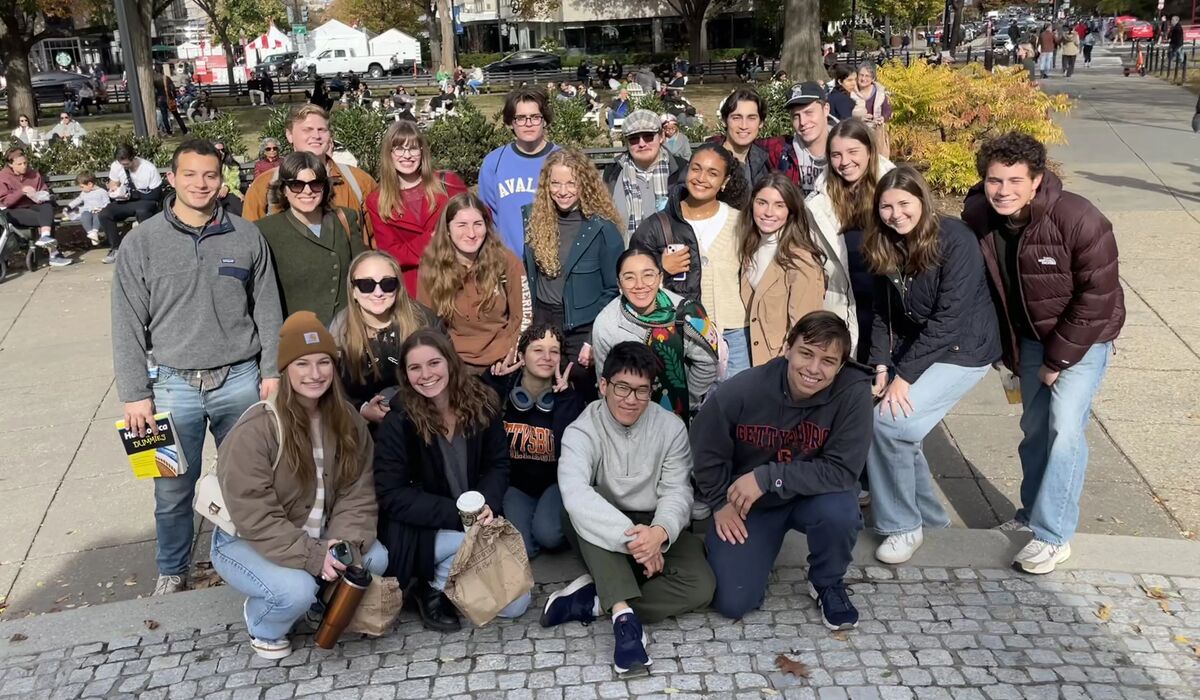
Gettysburg’s world-class language faculty prepare students to be global citizens. From critical thinking to communication, foreign language and cultural studies broaden students’ understanding of the world.
Just weeks after graduating from Gettysburg College, Max Butcher ’19 traveled to China to study Chinese on a State Department Critical Language Scholarship. With newfound knowledge of Chinese language and culture, he returned to the United States to work on space issues and technological assessments for the Science and Technology Policy Institute, supporting the White House Office of Science and Technology Policy and other federal science offices.
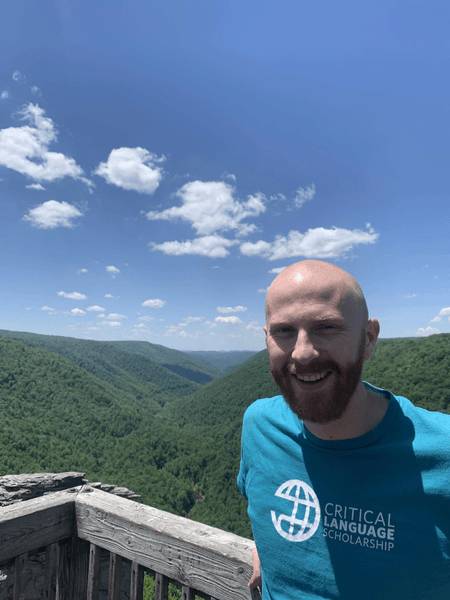
Today, he serves as a researcher in the Institute for Defense Analyses’ Global Dynamics and Intelligence Division, aiding the Department of Defense. Butcher was prepared for this role, which brings together knowledge of China and global technology policy, thanks to the transformative student-faculty research opportunities he received at Gettysburg College. With guidance from Prof. Rudd Platt, his environmental studies honors thesis used satellite data to study air pollution trends during the 2008 Summer Olympics Games in Beijing.
“I wanted to explore the world and see things from new angles. I also wanted to learn about and solve big problems. Taking classes in the Environmental Studies Department and East Asian Studies Department gave me the tools to do just that,” Butcher said. “I'm incredibly grateful to the many professors and faculty at Gettysburg College who advised and mentored me along this journey.”
“Our students are deeply motivated and our faculty works closely with our majors through guiding them through language study, study abroad, and individual research, and planning future jobs, graduate schools, and careers,” added East Asian Studies Chair Eleanor Hogan, who, along with Prof. Junjie Luo, Fritz Gaenslen, and Jing Li, supported Butcher’s East Asian studies education.
Global literacy in action
“Wer fremde Sprachen nicht kennt, weiß nichts von seiner eigenen.”
“He who does not know foreign languages, knows nothing of his own.”
- Goethe
From the first dynamic course students take to their last, our language faculty are committed to student success, as the languages are an integral part of the Gettysburg College liberal arts education. Gettysburg offers modern and classical languages—including Arabic, Spanish, and more—ranging from beginner to advanced levels, enabling students to read, write, and speak in other languages.
“Students find in the Spanish Department a group of researchers and scholars who put at the center of their academic work their responsibility toward our students,” Spanish Chair Alvaro Kaempfer P’22, P’25 said. “The success of our students is our success. We provide students with a home in a language they are acquiring or one that is already their own that they are looking to improve. We embrace Spanish native or heritage speakers as vital members of our College community.”
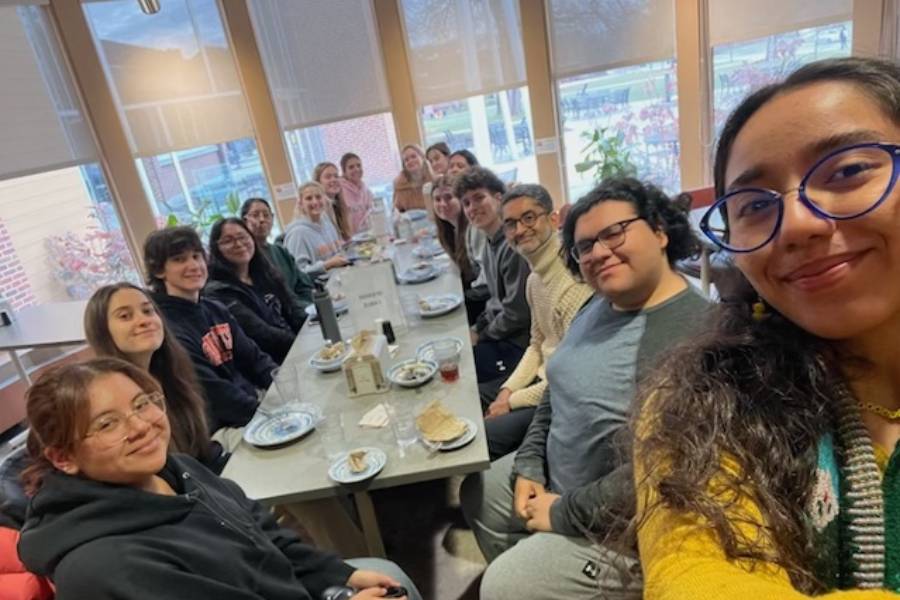
While languages have long been a staple of college curricula nationwide, the rise of technology has made global literacy an increasingly consequential skill. At Gettysburg, language departments are constantly innovating to better prepare this current generation of students to engage in our interconnected world.
The French Department recently premiered a course titled “French for Professional Purposes,” which not only hones students’ French language skills by teaching them vocabulary related to health sciences, diplomacy, and business, but includes readings on cultural differences.
“As noted by Forbes Magazine, among other publications, French is set to become one of the most widely spoken languages globally. French-speaking Africa alone boasts over 160 million people, representing significant emerging markets in the business world,” French Chair John P. Murphy said. “The department is continually reviewing its course offerings to ensure that they meet the needs of today’s students.”
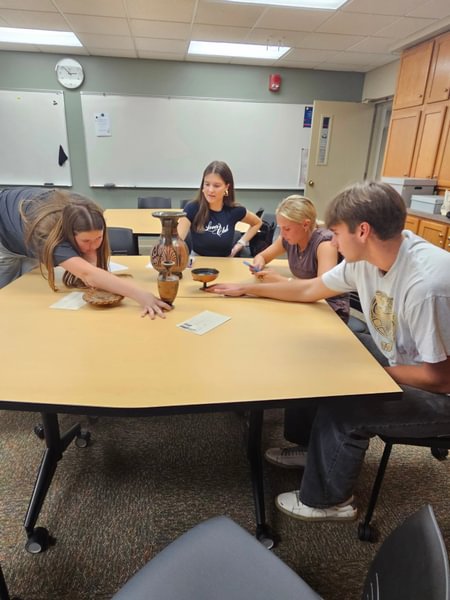
The Classics Department also goes beyond standard courses in ancient Greek and Latin language and offers classes that study ancient Mediterranean history, literature, philosophy, and art. This encourages students to engage in vital conversations about society and difference.
“Our department truly contributes to students’ breadth of knowledge,” Classics Chair Rachel Lesser said. “We take on big, consequential questions such as: ‘What does justice look like?’ ‘How is power distributed in a society?’ ‘How do we think about the ‘Other’—those who are different from us?’ ‘What forces—inside us or beyond us—determine our actions?’ ‘How should one aim to live?’”
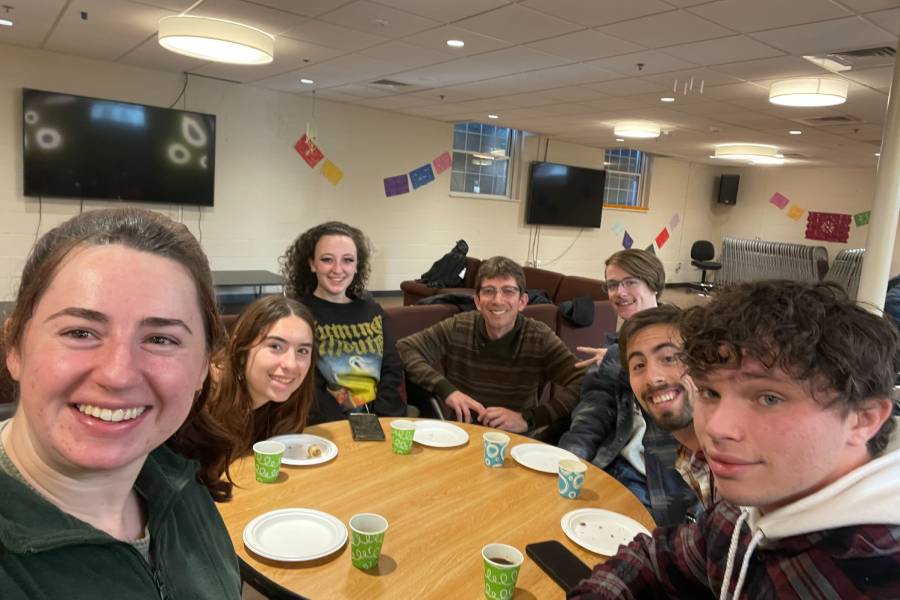
Language learning for life
One of the fastest ways to learn a language is to immerse yourself in a country that speaks it. Nearly half of Gettysburg College students study abroad through our nationally renowned Center for Global Education, giving them the opportunity to speak another language and learn about another culture.
“Our study abroad and immersion opportunities enable students to experience the Arabic language and culture firsthand in Morocco, Jordan, Egypt, and Tunisia,” International and Global Studies Chair Abdulkareem Said Ramadan noted. “With more than 400 million native speakers, it is a vital medium of communication, commerce, and diplomacy in the Middle East and North Africa.”
Gettysburg graduates walk away with more than language courses and study abroad experience under their belt. Some pursue advanced degrees in a variety of fields, while others choose to live and work abroad. They also enter the world with lifelong mentorships from collaborative research experiences.
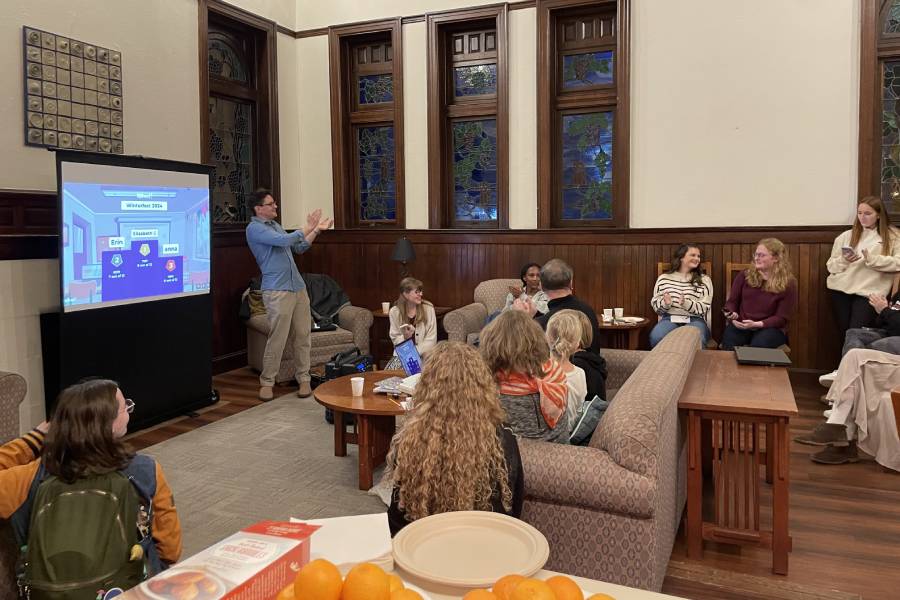
German Studies Chair Kerry Wallach partnered with several student research assistants on her new book about Jewish artist Rahel Szalit, and German Studies Prof. Henning Wrage mentored students who contributed to his edited book “The DEFA Legacy: An Encyclopedia of East German Cinema.” Their colleague, German Studies Prof. Tres Lambert, has helped students earn Fulbright and other prestigious fellowships to study, research, and teach abroad, while locally, numerous students in the French Department have received Mellon grants and Kolbe Research Fellowships to conduct undergraduate research with a faculty member and present their findings at graduate and professional conferences.
“This hands-on experience is highly valued by the French Department, as it provides students with a chance to develop their research and critical thinking skills while also building valuable professional networks,” Murphy said.
Last year, East Asian Studies Prof. Jing Li likewise guided Emily Walsh ’25 of Doylestown, Pennsylvania, on her research project on gender across media, later presenting her paper at the Lycoming Undergraduate Humanities Research Conference. That paper was then accepted to the poster session of the annual AsiaNetwork conference.
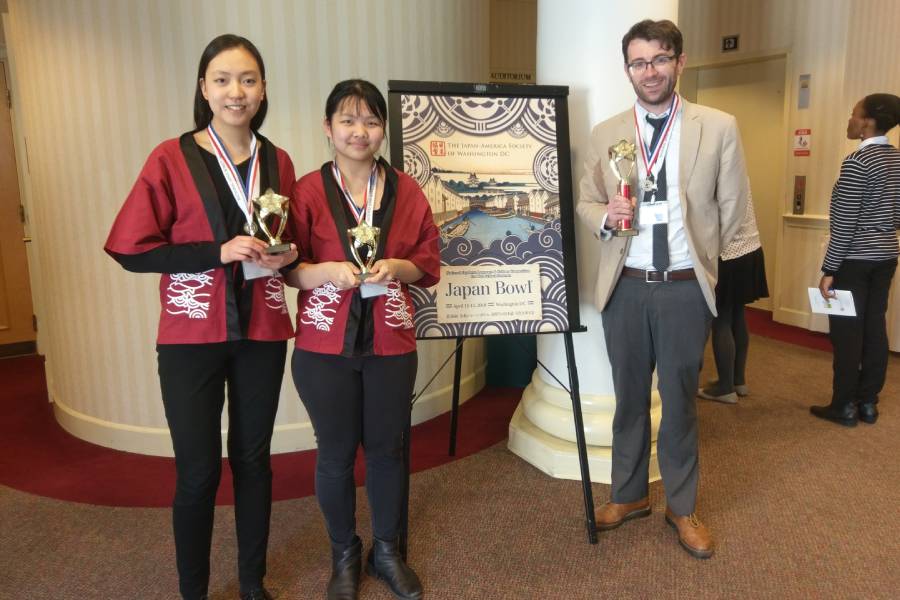
“Many of our graduates have continued their commitment to engaging with China or Japan,” said East Asian Studies Chair Eleanor Hogan, including Andrew Scronce ’03. He teaches Japanese language at a high school in Virginia and has taken trips to Japan with his students.
“Under Scronce’s guidance, Langley High School won a national title at the Japan Bowl,” Hogan added. The Japan Bowl is the United States’ premier Japanese language competition that brings 200 of the country’s top high school Japanese language students to Washington, D.C., to compete annually. “We are truly proud of his success.”
In the professional world, knowing languages breaks down barriers of understanding—no matter the industry.
“Every day, I speak to people who are native Spanish, Italian, Korean, and Yiddish speakers, and knowing one or two words of each has helped tremendously,” public historian and former Classics major Francesca Costa ’19 said. “What I learned about archeology, history, and art was transferred to how I create programs and present information to our public.”
Altogether, Gettysburg’s comprehensive language learning opportunities engage students as global citizens, equipping them with a fuller understanding of the human experience.
“The experiences in the classroom and out of the classroom are vital for the students to develop cultural sensibility and information,” Kaempfer reflected. “Our faculty are making sure students see Spanish as a language populating our daily lives and an integral part of the American experience—learning about communities, realities, and experiences beyond their own.”
Related Links:
External Links:
By Phoebe Doscher ’22
Photos courtesy of Eleanor Hogan, Alvaro Kaempfer, Rachel Lesser, Abdulkareem Said Ramadan, Andrew Scronce ’03, and Kerry Wallach
Posted: 05/09/25